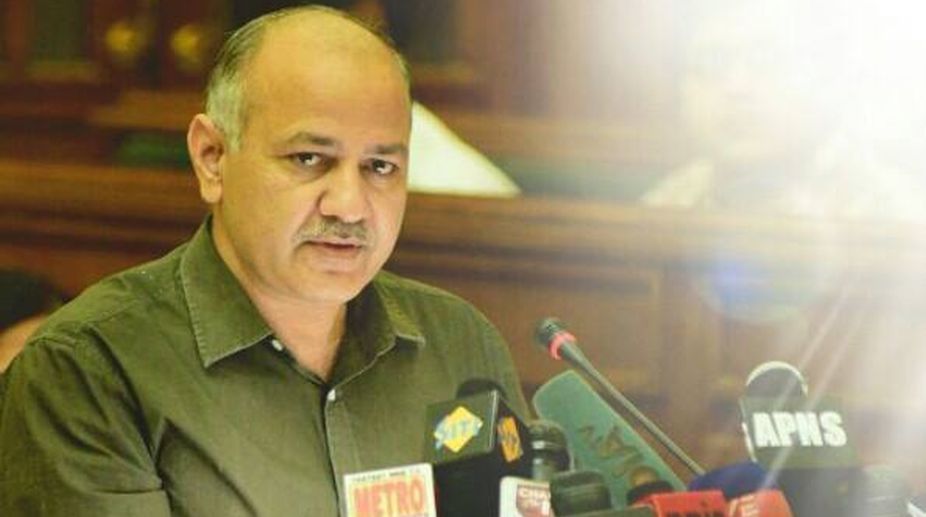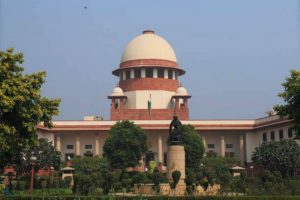Delhi Deputy Chief Minister Manish Sisodia is the Aam Aadmi Party (AAP) supremo and Delhi CM Arvind Kejriwal’s go-to colleague for all tricky matters relating to party or government. Sisodia, 45, started his career as a journalist and worked as a documentary film-maker and a television newsreader. He became an early participant in the Anna Hazare-Kejriwal 2011 popular movement that called for the Jan Lokpal legislation.
Following the creation of AAP in late 2012, Sisodia became a member of its Political Affairs Committee. In the February 2015 Delhi Assembly election, that witnessed a near-total victory for AAP, Sisodia won by a huge margin. He has been handling several key portfolios in the Kejriwal cabinet including those of Education and Finance. In an interview to JUNAID KATHJU, Sisodia spoke on a range of issues.
Advertisement
Edited excerpts:
How does it feel to be a politician?
It is tough but I am enjoying my work. You should enjoy your work, otherwise it is not possible for anybody to work hard. As a politician I have an opportunity to help people. And if I can make even a small contribution towards improving people’s lives, it will be an achievement. Even when I was a journalist my aim was to use my profession to help common people. Of course, as a political party we are facing a lot of retaliation from many sides. We anyway never expected a red carpet welcome when we formed AAP. Unfortunately, power has been the reason behind devastation of peoples’ lives. And now when you are using the same tool to reverse it there will be retaliation, be it from bureaucracy or rival political parties. So it is tough, but at the same time it is important to change the system.
As minister you seem to be aiming to bring changes in the education system. How do you look at it?
I have a belief, which is scientific too. Whatever changes we want to see in the country, government is only the medium through which we can achieve it, but the key is education. Governance is flood relief work, but it can’t change the system permanently ~ only education can. Education can change your approach towards the way of living. Education is the solution to maximum problems on earth.
As Delhi’s Finance Minister what do you make of the state of economy in the country?
The Centre took a few wrong steps which have damaged the economy. We are yet to understand the motive behind demonetisation. What was it all about? It was definitely not about bringing back black money. So who actually benefited from it, only time will tell. The second was the poor implementation of the Goods and Services Tax (GST). I have said many times in the GST Council meetings that while making new tax laws we should think from the public and traders’ perspective. However, many discussions there have been officers-centric ~ as to how officers will work under the new tax regime. I was also against the 28 per cent tax slab. Similarly, I am against the idea of Integrated Goods and Service Tax (IGST). When there is one nation one tax, then what is the need of the IGST? GST should work on lower tax-more compliance formula. But unfortunately I don’t see others believing in it.
The Delhi government has always been at loggerheads with the Centre. Don’t you think it is actually hampering development work in the Capital?
First of all, the Central government should understand their role. They are a national government. They should not interfere in a state government’s work. Delhi is a national territory and its legislature has its own powers. Now where mohalla clinics will be established or how many teachers will be hired in schools, what has the Centre or the Lieutenant Governor (LG) got to do with it? But the irony is that the files pertaining to such matters are not even shown to the Minister-in-charge. I was asked to sanction, as Education and Finance Minister, Rs 18 crore to build a school, but how many teachers will be hired for that school, what will be their qualification will be decided by the LG. If my ministry is paying to build a school and teachers’ salaries, why should the Centre hire them and not me?
AAP has often accused the BJP of trying to control institutions like the Income Tax department, CBI, Election Commission, among others. But is this possible?
You see when you are in power with thumping majority then it is easy to control such institutions. Now it depends upon the government whether they want to use these institutions for the cause of people or to go after the Opposition parties. Today, the CBI is after AAP donors who had only donated Rs 2,000 to the party, but people like Vijay Mallya are enjoying life in a foreign country. You are misusing these democratic institutions to suppress others. The country is facing so many problems, economy is in slump but the Centre is gunning for the Opposition.
After sweeping the 2015 Delhi assembly elections,AAP has been consistently going down the slope. The party’s defeat in the Punjab and Goa elections and then in Delhi’s Rajouri Garden bypoll as well as municipal elections raised a question mark over its future. Although it recently managed to retain the Bawana assembly seat in another Delhi bypoll, the party does not appear to be doing too well. Your comments.
See, every political party has to go through this phase. Yes, there were a few surprises. We did not anticipate losing Punjab. We were very confident of forming government there. In Goa the results were expected. However, there were factors why we lost these elections which include EVM tampering. It was only after we raised this issue that VVPATs were introduced.











